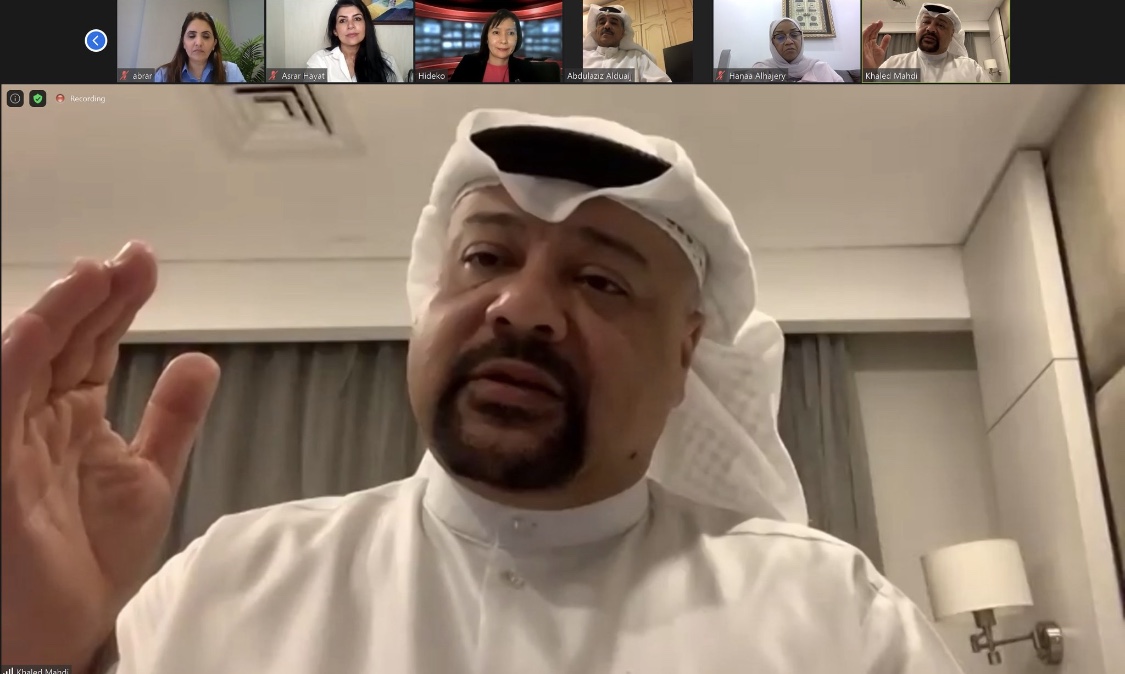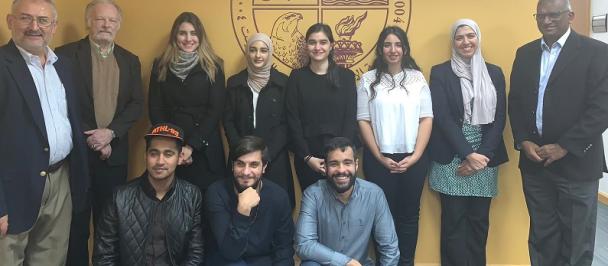A virtual training workshop has taken place to assist NGOs and charities with regards to financial skills and project management in the context of the COVID-19 pandemic
Kuwait City, Kuwait – A virtual training workshop was held for NGOs and charities in the field of "financial skills and project management in the context of the emerging Corona virus outbreak". This workshop was organized with the partnership of the General Secretariat of the Supreme Council for Planning and Development (GSSCPD), United Nations Development Program (UNDP), the Ministry of Social Affairs and Labor (MOSAL) and the General Anti-Corruption Authority (Nazaha), and the Kuwait Financial Intelligence Unit (KwFIU).
The two-day online workshop included 5 practical lectures and two presentations for charities on their achievement and challenges in the field of charity, as well as interactive discussions for participants.
On this occasion, the Secretary General of the Supreme Council for Planning and Development, Dr. Khaled Mahdi said: "The General Secretariat of the Supreme Council for Planning and Development is working to support the implementation of the workshop, because human capital is the basis of any development plan. Therefore, their skills must be developed and their capabilities to manage the business they are doing must be developed. Thus, participation is meant to support achieving societal partnership between state institutions and civil society to enhance its social role and also to achieve the goals of sustainable development.”
Mrs. Hana Alhajery, Assistant Undersecretary for Social Development Affairs at the Ministry of Social Affairs and Labor praised “the participation of charitable and civil society organizations working in the State of Kuwait in the training workshop based on its humanitarian, community-based work, volunteer work, and public funds, to serve the community.” She also added, “It is a great responsibility to ensure a high level of transparency, productivity, quality, and efficiency in managing its projects, which requires developing and increasing its capabilities in managing its financial activities, according to more professional methods, that contribute to the sustainability of its work and enhance that sustainability by strengthening its ability to identify weaknesses and building on the strengths of providing its services. "
Engineer / Abrar Alhammad, Assistant Secretary General for Prevention in "Nazaha", said that the importance of this workshop lies in its effective contribution by providing specialized training that supports the awareness side to prevent corruption and reduce its occurrence; in conjunction with activating the priorities and initiatives of the Kuwait Integrity and Anti-Corruption Strategy (2019-2024); related to enhancing the complementarity between the efforts of the public sector and civil society in the area of enhancing integrity and combating corruption.
Mr. / Nassar Al-Shariaan, Senior Financial Analyst, provided a definition of the legal basis of the Kuwait Financial Intelligence Unit and its responsibilities to receive, request, analyze and transmit information related to what is believed to be the proceeds of crime or money linked; or related to it or can be used to carry out money laundering operations or terrorist financing.
Mr. Arkan El-Seblani, the Regional Chief of Anti-Corruption of UNDP noted of the increasing importance of technical capacity development, risk management and civic engagement as one of the most effective prevention measures. UNDP will also run technical sessions on financial accountability and project management.
The training workshop aimed to provide support to non-governmental charities to develop their capacities to manage financial expenditures and manage their activities effectively and transparently; in accordance with governance frameworks that reduce opportunities for corruption suspicions in light of the consequences of health and global crises; and to build capacities that support the aspect of awareness to prevent corruption and reduce its occurrence and in the context of enabling Kuwait Integrity and Anti-Corruption Strategy priorities (2019-2024).

 Locations
Locations
